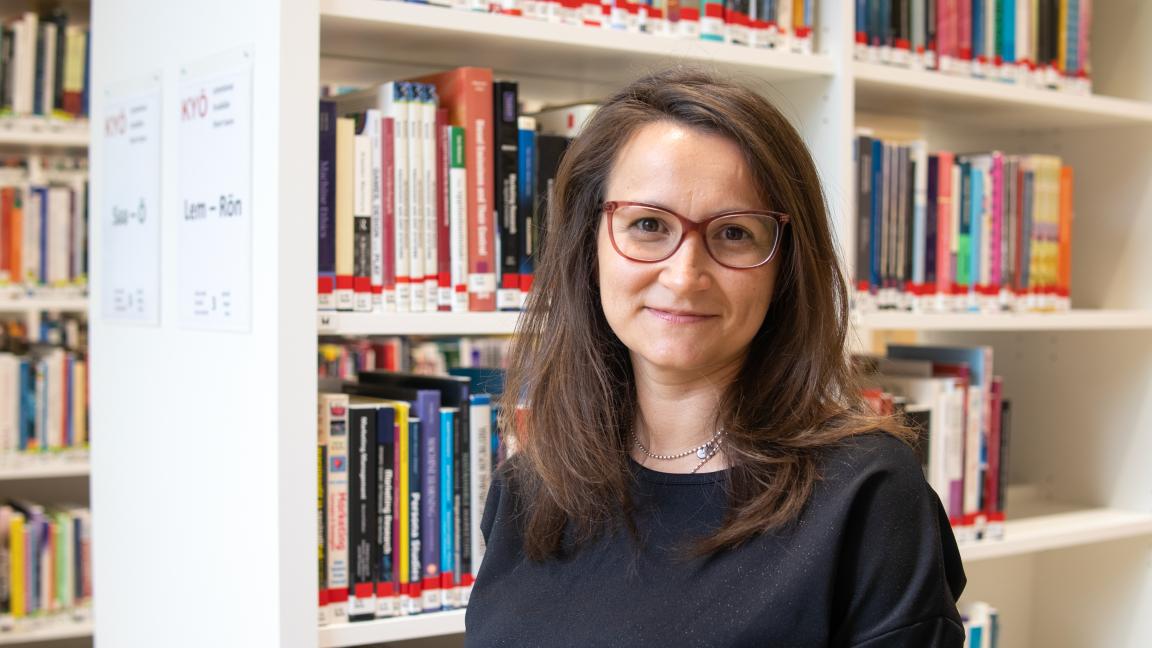Technology on its own will not enhance human resource management, but it can empower HR professionals
Dina Myllymäki's doctoral dissertation at the University of Vaasa shifts the focus from the technology itself to the way it is used and experienced in everyday activities. Myllymäki provides new insights into how success is measured in implementing new technology.
– My research emphasises the importance of human agency and the socio-cultural context in which technology is enacted. The implementation of technology is not enough; it is the synergy of technology, human agency and organisational context that drives true innovation and success, says Myllymäki, who will defend her dissertation on 31 August 2023.
Unlocking the true potential of technology-enabled work arrangements for organisational success
New technologies give managers the autonomy to choose their work settings and schedules. This context, combined with their self-identity and company expectations, significantly influences how they work.
In particular, research highlights the correlation between managers' perceptions of their own identity, their work environment and the attentional stimuli it creates, which has implications for the way managers evaluate performance. For example, monitoring tools create additional demands for managers to focus on, rather than replacing the existing demands that arise while observing or discussing employees' work. Managers develop their practices to balance these demands from different sources to ensure equitable evaluations.
Understanding managers' attentional engagement is critical for organisations as it helps to focus their attention on key issues. HR and operations directors should design performance evaluation practices for line managers so that they take the use of technology into account.
Technology does not automate HR work, but rather augments and empowers its users
A key finding is the central role of active technology users in driving transformation and shaping processes. As modern technology requires constant calibration, active engagement becomes paramount. HR professionals act as both users and system providers, which requires preparing for implementation, management, maintenance and updates.
– I advocate a shift in the mindset of HR professionals from the rhetoric of automation to embracing the augmentation of HR processes. HR professionals are an integral part of the organisation's HR practices, whether in administrative or strategic roles. Their role is to actively collaborate with the system, understand it and lead its functioning, rather than make a distinction between what the system does and what HR does.
The findings of Myllymäki's dissertation are based on three studies that theoretically and empirically examine the impact the implementation of technology has on management practices. For her dissertation, Myllymäki conducted case studies by interviewing and observing HR professionals and line managers at work in two large Finnish organisations.
Dissertation
Myllymäki, Dina (2023) Managing people with technology: a sociomaterial perspective. Acta Wasaensia 512. Väitöskirja. Vaasan yliopisto.
Public Defence
The public examination of M.Sc. Dina Myllymäki’s doctoral dissertation “Managing people with technology: a sociomaterial perspective” will be held on Thursday 31 August 2023 at noon at the University of Vaasa, Auditorium Nissi.
Participation in the defence is also possible online: (Zoom, Password: 921754)
Professor Astrid Reichel (University of Saltzburg) will act as an opponent and Professor Adam Smale as a custos.
Further information
Dina Myllymäki, tel 040 870 1546, email dina.myllymaki@aalto.fi
Dina Myllymäki was born in Astrakhan, Russia and graduated as a Master of Science in International Business from Saint Petersburg State University, Graduate School of Management in 2009. Before moving to Finland in 2014 and starting her doctoral studies at the University of Vaasa, Dina worked as HR Partner in a large international retail company. Currently, Dina is starting her postdoctoral research as a visiting scholar at Aalto School of Business

